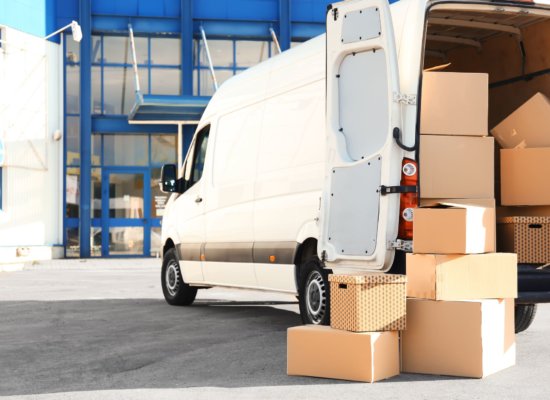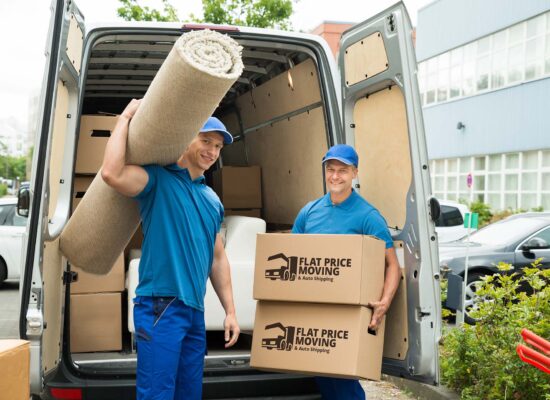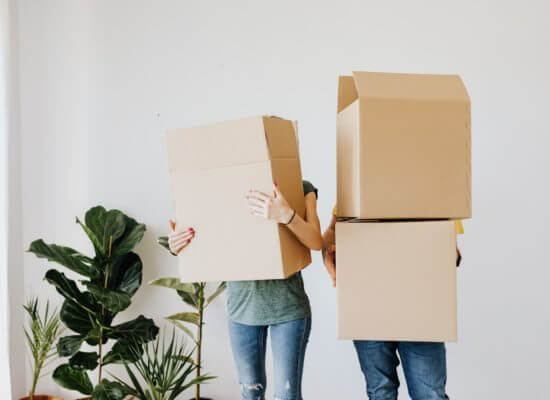How to Pack Plates for Moving in 5 Easy Steps
If you wonder how to pack plates for moving, the first thing you should know is what type of dinnerware you have at home. They come in different types and different sizes, not to mention styles, so you may have no idea what you use daily. There’s a type for absolutely every occasion, no matter how special or ordinary it is: the ones used for dinner, salad, desserts, cheese, fruit, tea, as well as for bread and butter – or we can go another way – ceramic ones, melamine, stoneware, earthenware, and bamboo plates.

When you plan a move, the first thing you need is to make a clear strategy on how to pack these properly because we’ve all broken a few more than we care to admit. And if this time you don’t move your dishes safely, you’ll find yourself shopping for dinnerware sets instead of settling in. To avoid this, we’ll go through everything you have to know, so your belongings arrive undamaged to your new destination.
Step 1: How to Pack Plates for Moving Without Supplies? Not in a Million Years
You’ll need several boxes, no matter if they are brand new or you want to reuse some of the old ones, make sure they’re sturdy enough. When it comes to getting organized to move, extra space is what we strive for, but having as little of it in a box as possible is the best way to pack plates. This is also where the main star comes in – packing paper, tons of it. Use it not only to cover highly breakable objects or your most beloved old china but as a filler, as well. As for other packing materials, the list is not long: dish boxes, tape, labels, and markers. When in doubt about how to choose the best-sized boxes with so many choices online and in stores, purchase medium-sized because they’re the best when packing plates for moving.
When Should I Use Dish Packs?
When talking about dinnerware, there are many relocation mistakes to avoid to secure the smoothest move possible. First and foremost, don’t forget to have a few dish packs at hand, as they will be your easiest way to pack stress-free. Even though they are a bit more expensive than the standard cardboard ones, dish packs are designed to protect your fragile items. They have extra padding, which makes them stronger and much thicker.
If you wondered how to pack plates for shipping, this is a good moment to use these. With a little planning, you’ll prevent your items from cracking and there’ll be no need to worry if they collapse under the weight of other boxes when stacked on top of each other. If you’re moving out for the first time, the last thing you want is to waste your time thinking about what’s happening in the truck’s cargo hold.
Skip the Newspapers
Do not overlook one of the most significant moving hacks – skipping newspapers. Even though they might appear as a cheap alternative, they will make the whole process even more complicated. Printed and far from clean, there’s a pretty good chance they will leave ink stains on your dinnerware for good.

Step 2: General Tips on How to Pack Plates for Moving – Preparation Phase
Here are some good tips for a successful relocation to ensure everything gets to your home in one piece. Generally, there are a few basic steps to follow:
- Be super careful when checking the boxes before you start filling them if you’d rather be safe than sorry,
- Have enough tape on all sides and edges if you don’t want them to cave in,
- Create a soft cushion on the bottom crumpling paper or any other protective padding of your choice,
- Prepare different types of protective covers for your items.
Cleaning and Wrapping Up
Long-distance moving is an intimidating task, so it’s normal if you have trouble answering a question about how to pack dinnerware effortlessly. Following the most common wrapping method, genuinely easy and simple to apply, will surely help. Take a stack, lay it on a clean surface, and put the plate at the center of the sheet. Start folding the corners until you cover the whole dish. Of course, they should be clean and dry before you start packing if you want them the same when in the new home.
Tips on Clothes and Towels
However, if you are going out of state on a budget and trying to understand how to save on relocation costs, you certainly must be curious about how do you pack dishes without paper. There are indeed many alternatives you could find in your home. Old clothes, towels, sheets, pillowcases, or any soft cotton would work. Towels, being thick, are probably most supportive of all because they provide enough cushion between objects.
How Do You Pack Dishes for Moving With Bubble Wrap
This one is less eco-friendly and a bit more expensive, but still the best way to protect dishes you are most attached to. A bubble wrap with smaller bubbles comes in particularly handy since it is more flexible than a wrap with large ones. Whichever you choose, keep in mind that bubbles should be facing the surface of the object you are trying to protect.
To see how wrapping your fragile items with bubble wrap looks like, check out the video below.
Step 3: Pack Them but Don’t Break Them
How to move to another country or state with the staggering number of bowls, mugs, cups, glasses, and all other long-forgotten dishes lying around the kitchen is one of the toughest tasks when trying to find a strategy that works for you. Relocating the breakables is somewhat tricky, even for experienced movers. Still, here is a strategy that will make it a little less daunting and a little bit faster:
- Stack everything vertically, the same as when you’re putting them in the dishwasher. Remember to fill out the gaps left in between.
- Consider using cardboard dividers to separate each item even more.
- Before closing the lids, keep in mind to leave a safe zone on the top and place the final protective layer of preferred padding material.
- Labeling is a crucial step and a lifesaver for every smart mover. Mark every box “fragile” or “handle with care” and “this side up.”
Bowls and Plates Should Have the First Day
Bear in mind these are the best dishes to start with because they’re heavy and of a similar shape, which goes well together. But if you’d like to save a plate or two, stacking them individually might be a better choice than going for bundles. We are sure these are the things you need for your first apartment, so safeguarding them is a way to go.
And They are Not so Delicate
Unlike glasses, which are fragile from top to bottom, some of your dinnerware is not so delicate, and you can handle it less deliberately. When tackling dishes such as mugs, cups, or glasses, treat them like tiny bowls. Start by filling them first with padding material, and only then will they be ready for the wrapping part. Put two of them together before placing them on a sheet of paper. Roll the dish across to the opposite side. For extra protection, fold in the excess left.

Step 4: Prepare Them Properly if They Should Spend Time in Storage
Storing is an option you definitely want to consider when it comes to cross-country moving. The truth is you can always donate unwanted items, but sometimes they are much too precious, or they hold huge sentimental value. Maybe you don’t need them with you when going long-distance, but no doubt you’ll need them again someday.
Whatever the reason, when you finish packing all of your items, gather them and look for a storage facility. Even though it might not be the cheapest way to move out of state, it will soothe your mind most efficiently. Storage units are a great place to keep most of your delicate stuff, but take into account they will remain there for quite some time.
Placing them vertically would be particularly helpful to reduce the stress at the bottom of the stack. It would be best to put the dinnerware in something more durable than standard cardboard packages because of humidity and low temperatures. Dish packs are a good solution, and if there’s some extra money to spend, wooden crates might turn out to be most beneficial.
What Should You Not Pack When Moving
At one point, you’re just desperate to simplify the whole transitioning process, even though deciding what and what not to pack when relocating might be an overwhelming but most often quite significant task. Last-minute loose ends will easily take you off your schedule, so learning to let go ahead of time will do wonders. Create a clear list based on your needs.
It will make the process simpler and help you decide what to leave behind. There must be a solution for the bulky items you possess, all too large and heavy. You can have a garage sale and earn some money now when you need it most. Not to mention things you barely use. Get rid of them.

Step 5: Tread Carefully When Loading The Truck
Once the truck arrives, move all the fragile packages slowly to prevent any breakage before the move begins. Start filling the truck with heavier packages to stop them from shifting around, and if you happen to find some piece of furniture around waiting to be stacked, even better. Placing fragile boxes beneath a table or some other piece of furniture will protect them further.

One Step to Rule Them All: Hire Long-Distance Movers for Packing Day
Whether it is about the last-minute moving and the urge to speed up, or it just crossed your mind that a bit of help would be appreciated, don’t do it on your own. You can never have an entirely stress-free relocation process, but you’ll have numerous benefits with hiring movers. The most precious ones would be they’ll offer you a way out and a huge relief.
If you are not sure about the cost of interstate relocation and have no idea how to choose a long-distance moving company, prepare some questions to ask movers. To make it all less complicated, consider the time you’re saving and how reliable they are. Also, depending on the situation, ponder over your needs. They are always our truthful guides. Thanks to them, you’ll quickly figure out whether it is high-quality packing services that you’re craving for at the moment, or you can’t do without all-round moving services, too.





